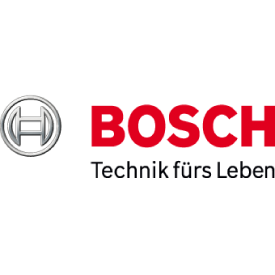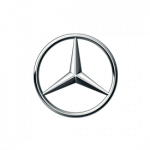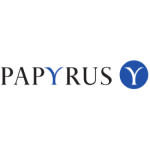The automotive supplier Bosch has introduced a combined yard and timeslot management system from Cargoclix at its Karlsruhe location for logistically optimal delivery to its aftermarket customers. The bottom line is a significantly higher transparency and economy in the management of trailers, swap bodies and containers.
Queues at the ramp. The topic is high on the agenda of almost every logistics company in industry, trade and services. But that is only one side of the coin. The chaos at the ramp is usually followed by chaos on the yard when containers and truck bodies are parked all over the place and nobody knows where which goods actually are. Robert Bosch GmbH has solved both problems. The Bosch Automotive Aftermarket division has been using the new software-supported solution for yard and timeslot management in the warehouses in Karlsruhe and Kandel for about a year, which was developed in a development partnership with the logistics marketplace Cargoclix. Robert Bosch GmbH has been using TimeSlot to organize its ramps at a total of ten locations since 2010. In order to meet Bosch’s requirements, the Cargoclix developers quickly expanded the existing “TimeSlot” system for time slot management to include trailer and yard management. The result is a new, integrated overall system that manages and controls all trailers, swap bodies and containers on the Bosch factory premises in Karlsruhe – starting with registration at the gate, through placement in the car park to unloading at the ramp and empties control.
The trailers, swap bodies or containers are parked in specially equipped parking spaces with the help of the new yard management – this is the core of the new solution. By integrating the system into the time slot management system, Bosch and freight forwarding employees know exactly where to park their vehicles on the yard and which units need to be moved when and where. “We benefit from complete transparency both for all loading units and for controlling the responsible logistics service providers,” says Heinz Baureis, head of the transport logistics department at Bosch in Karlsruhe. “In addition, we can smooth out peak loads in a very good way and achieve an even distribution of delivery traffic on our factory premises.
Logistics Service Provider Integrated into the Concept
To date, Bosch has integrated around 50 percent of its logistics service providers for trailers and swap bodies into the new concept – and the trend is rising. “But we also pay great attention to whether the use makes sense in individual cases,” explains Tobias Schmider, who is responsible for implementing integrated yard and time slot management at Bosch Karlsruhe. If, for example, the delivery frequencies or quantities are too low, it is usually not worth integrating these service providers”. The situation is slightly different for complete sea freight containers: Here, more than 80 percent have already been integrated into the system, and Bosch plans to increase this figure to 100 percent in the medium term.
The connected forwarding agents first post certain timeslots for their freight units to be delivered to the system. If the trucks then pass the measuring points at the Bosch gate, they are assigned an exact parking space on the factory premises. Employees at goods receipt then pull the containers, trailers or swap bodies parked there from this car park via Cargoclix to the appropriate loading door and report the “empty” status back to the system after completion of the unloading process. The empty transport unit leaves the factory premises via the gate with a new moving unit and returns to the forwarding agent’s cycle. Logistics service providers receive individually configurable status information and automatic call-off orders directly via the timeslot system and, if desired, also by email.
Changeover from Push to Pull System
“If our freight forwarders have parked the units on our factory premises, they must be unloaded within defined times,” explains Schmider. “We want the goods to be available as quickly as possible after unloading and avoid long waiting times before and during unloading. The transport units can be parked on the Bosch site for a maximum of two days. The advantage is that both the tractors and the drivers are back in service much faster. Compared to an equally conceivable RFID-supported solution, these investments are significantly lower for all parties involved. In addition, the systems of logistics service providers would have to be adapted to RFID and a consistent use of this technology would have to be ensured.
On average, around 120 units per day are controlled in this way at the incoming goods department in Karlsruhe, and another 80 units are added daily at the Kandel location. “With the new system and the associated conversion from a push to a pull system, Bosch is able to track the transport units from their arrival at the container terminal in nearby Wörth until they leave the plant premises without gaps and in real time,” adds Dr. Victor Meier, Managing Partner at Cargoclix. “The system is flexibly adjustable and makes the information available to its users fully automatically.” And the logistics service provider, for its part, also benefits at all times from the full transparency of the whereabouts of its containers, trailers or swap bodies via Internet connection. In addition, the simple availability of the corresponding data material enables much better communication between the parties involved, and the number of errors is reduced significantly.
Automotive Aftermarket at the Bosch Site in Karlsruhe
In the Bosch Automotive Technology business sector, the Automotive Aftermarket business sector controls the worldwide supply, logistics, and sales of automotive spare parts, workshop equipment, and Bosch products for retrofitting. The range of services is supplemented by technical customer service for automotive products and systems.
Some 1,300 associates work at the Bosch site in Karlsruhe, 300 of them in the warehouse area. A total of 95,000 pallet spaces and 160,000 so-called gripper storage spaces are available for the logistical processing of the approximately 400,000 different articles. From Karlsruhe, Bosch primarily serves the so-called independent aftermarket, i.e. free trade. Vehicle manufacturers and original equipment customers are supplied directly from the nearby Kandel site to their spare parts warehouses.
Cargoclix TimeSlot
Cargoclix is a neutral Internet marketplace for the electronic tendering of transports and a provider of modular time slot management systems. The range of services offered by the logistics platform “Cargoclix Tender” includes worldwide tenders for contracts for road, rail, air freight, sea and inland waterway transport, courier express parcel services and logistics services such as warehousing. The central product of the Time Window Management division is the modular, adaptable “TimeSlot” software for optimising processes at the ramp. The additional trailer and yard management functionality manages and controls all containers, swap bodies and trailers, starting with registration at the gate, through placement in the car park to unloading at the ramp and empties control.
The company was founded in 1998 in Niefern near Pforzheim and is today based in Freiburg i.Br. With over 23,000 registered members from industry, trade and forwarding, Cargoclix is one of the leading international tender platforms for logistics services.
System requirements: internet connection
Interfaces: possible to ERP, warehouse management, etc. if required
Booking cost per slot: 50 cents



